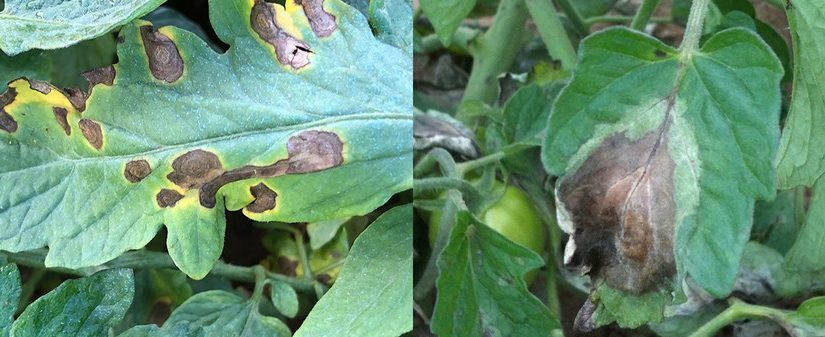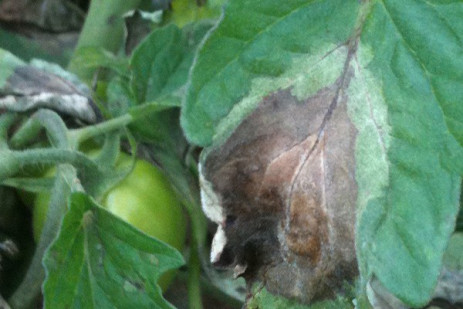Aug 31, 2020Late blight confirmed in southwestern New York
Late blight was confirmed Aug. 27 on a commercial farm in Chautauqua County, New York, on both tomatoes and potatoes.
This is the first confirmed report in the region this year. The next closest reports are on potato in central Wisconsin and on tomato in Tennessee and North Carolina. Late blight is characterized by lesions that are irregularly shaped and initially water-soaked and pale-green before turning gray-brown in color. Under humid conditions, the lesions on the underside of the leaves will sporulate giving them a white fuzzy appearance.
The lesions will tend to develop on the upper to middle part of the plant canopy as opposed to early blight or Septoria leaf spot (tomato only) that start on the lower leaves and move upwards often defoliating the plant if left unmanaged.

Early blight lesions have more well-defined margins and are more circular in shape with tight concentric rings and may be surrounded by yellowing leaf tissue. Fungicide programs that include protectants like mancozeb or chlorothalonil will also help protect against late blight.
Many of the products that are recommended for downy mildew on cucurbit crops are also recommended for late blight on tomato and potato including Orondis Opti, Ranman, Previcur Flex, etc. A more complete list of recommended fungicides can be found in the 2020-21 Mid-Atlantic Commercial Vegetable Production Recommendations.
If you are done with harvest and in a county close to the confirmed report, consider disking under the crop or burning it down with an herbicide so the field does not unknowingly become a source of inoculum since you are no longer actively scouting. If you suspect late blight on your farm please let me know either by email at [email protected], by phone at 814-865- 7328 or contact your local Extension Office.
– Beth Gugino, Extension vegetable pathologist, Penn State University
Photo at top: Late blight on tomato. Photos: Beth Gugino

















